
Treating Depression and the Avoidance Personality Disorder with Acupuncture
The wisdom of Acupuncture allows us to look at the workings of our bodies in a way that is quite different from what we are used to. I find the way the ancient Chinese viewed the body, mind and soul to be brilliantly illuminating.
The ancient Chinese mapped-out pathways in the body that circulate mental, emotional and soul energy. The acupuncture channels are roadways traveling throughout the body, showing us how physiology and pathology moves and progresses. Through understanding the acupuncture channels we can see how depression, anxiety, paranoia, anger, resentment and all other mental-emotional (and psychosomatic) states manifest. The way this has helped me in my own life has been monumental! Acupuncture has been the greatest help for my own mental-emotional wellness.
Throughout my life I have suffered from depression, anxiety, frustration, moodiness and often a general sense of “futility” and purposelessness. This may surprise many people as I come across usually as very happy, motivated and connected. I’m lucky, as I have a powerful healing system to help me resolve these uncomfortable states. Nothing I have done has been as powerful as acupuncture to address my mental-emotional concerns.
The ancient Chinese discovered a strong relationship between the circulatory system, the mind and the emotions. There is an entire acupuncture channel system devoted to the flow of blood as it affects the “spirit,” creating a detailed study of psychosomatics: the way mental-emotional issues manifest physically. The name of this acupuncture channel system is Luo, meaning connecting vessels.
In the ancient Chinese medical classic Ling Shu (the spiritual pivot), there is a chapter (Chapter 10) that describes two acupuncture channel systems. The first system details the normal daily physiological flow of Qi (vital energy) and blood throughout the body. These Primary channels show the normal flow of both physical as well as mental-emotional energy. The second acupuncture system presented in this chapter details how normal physiology goes awry. When an aspect of the body’s normal physiology becomes overwhelmed, it utilizes what are known as “collaterals” to contain the unmanageable material. For example, when the body contracts Lyme’s disease, if the immune system is insufficient in its ability to expel the parasitic pathogen, the body will utilize a “collateral” to contain it. The first collateral system to become involved in containing an overwhelming pathogen are the Luo (connecting vessels). The Luo utilize blood to contain overwhelming pathogens, storing them within the circulatory system.
The description of the Luo system of acupuncture is quite sophisticated. It shows the displacement of unresolved pathogenic material throughout the body. For example, something unresolved, like Lyme’s can create symptoms involving the chest, the shoulders (joints), the jaw and head, ears, sinus, low back and digestive system. This occurs because the pathogen is being contained, trapped within Luo Vessels in these regions of the body. The body translocated the trapped pathogen into areas of the body for storage, which creates tension symptoms. As the condition progresses and becomes more stuck/buried in the body, the symptoms travel to deeper areas of the body, creating more severe symptoms.
Lyme’s as an example is an external pathogen – something from the outside that attacks the body. However internal pathogens like unresolved emotions can have the same types of physical effects on the body. Anger that is unresolved can also go into the Luo and become contained in different regions of the body, creating physical symptoms. When something goes into the Luo it usually creates both physical and mental-emotional symptoms. This is why emotional lability is often a symptom associated with Lyme’s disease.
The overriding message the Ling Shu is trying to convey is that something physical can create mental-emotional symptoms, and vice versa: something mental-emotional can create physical symptoms. When unresolved pathogens go into the Luo, they usually create both.
When a condition becomes chronically stuck in the Luo this can lead to personality disorders.
The major reason I became enamored with acupuncture was its ability to correct my tendency towards obsessive-compulsive disorder as well as my struggles with being somewhat of an avoidant personality type. In my case, my tendencies towards these disorders doesn’t appear to root back to any type of trauma, but to be more constitutional. Being that it is part of my nature, it is not likely something I will ever completely resolve, but it is something I can manage. Acupuncture has been the major way I have done this. And quite successfully.
The avoidant personality disorder is seen by Chinese Medicine as a dysfunction affecting the physiological systems of the Lungs and Kidneys. The problems manifest through the Luo Vessels of the Lung and Kidney systems, rooted in insufficiency within the Primary channels.
Obsessive-compulsive disorder is also associated with the Kidneys as well as with the Spleen.
The Avoidant Personality Disorder is described by Daniel J. Fox, PHD as manifesting: “fear of others, shyness and sensitivity to rejection.” It is as if the pressures of social interaction becomes too much for the person. They tend to “remove themselves from the outside world due to intense shyness and fear of experiencing emotional arousal.” This can create an “active aversion to social relationships, with reticence to engage in interpersonal relationships without certainty of success and acceptance.” This personality type can also have a tendency towards “low self esteem, and emotions that include sadness, tension, anger and loneliness.”
In my case, my Avoidant disorder manifests with a strong feeling of futility: that no one is listening to me; that anything I may do or say won’t make any type of impact. This habitually self-defeatist way of thinking may have its roots in childhood traumas: many of our current ways of thinking do. This causes me to move my attention internal and stop interacting with the world: I retreat and isolate. This usually goes alongside a tendency to engage in periods of obsessive-compulsive behavior.
As this is happening, energetically, my Kidney, Spleen and Lung qi (energy) stops interacting with one another. This can be measured through the radial pulse on the right hand. Pulse diagnosis is the main method of assessing the qi, blood and fluids within each other six major organ systems within the body.
It is unclear what causes what. This form of depression and self-defeatist thinking can come from a deficiency of qi in the Kidneys, Spleen and Lungs, which are collectively called the “Triple Heater” system within the body. The role of the Triple Heater is communication between the major energy centers of the body. The Spleen, through its relationship with the Stomach is what creates qi, blood and fluids through its metabolism of food and drink. This becomes the raw material for all physiological function in the body. The Spleen naturally ascends its qi into the Lungs whereby it is circulated throughout the body for vitality and functionality. All of this is supported by the physiological “fire” of the Kidneys: the system that is considered the root of the body and all its functions.
There are many things that can cause a deficiency of qi in the Triple Heater. It can come from exhaustion: overwork, overthinking. It can also come from unresolved emotions: sadness, fear, anger – any type of stress the body is unable to deal with or let go of. It can also come from an illness or infection that has not been resolved, such as Lyme’s disease.
Sadness depletes the energy of the Lungs; obsession or pensiveness (over-thinking) binds and knots the energy of the Spleen; fear suspends the energy of the Kidneys. When the Kidneys become suspended they will stop supporting the Spleen and the Lungs. When the Lungs are depleted they won’t support the Kidneys. When the Spleen is knotted, everything will become stuck in the center of the body leading to an emptiness in the chest and head.
Chinese medicine emphasizes the importance of emotional digestion. Failure to metabolize mental-emotional experience can be just as harmful to the body as inability to deal with a pathogen like virus, bacteria, parasite, or other foreign physical challenge.
Within Chinese medicine, all physical and mental functions within the body are divided into 6 major organ systems: the Heart, Liver, Stomach-Spleen, Lung and Kidney systems. They are designated by dominant visceral organ as well as by “Element”: Fire, Wood, Earth, Metal and Water. Each system manages numerous body functions, creating connection between many different systems as we see them in the West. For example, the Kidney system in Chinese medicine is dominant in regulation of the hormonal system.
Each organ system also manages certain aspects of emotion and mental function. For example, the Kidney is responsible for managing the willpower; the Heart manages the overall animation of the spirit; the Spleen the ability to focus; the Liver the ability to plan.
Myself, I tend to get overwhelmed. I live in New York City, which in and of itself requires a lot of energy. My body must metabolize the noise and energy of 10 million other people squeezed into a small island. Also, I am a healer, so I interact intimately and emotionally with many people everyday. Sometimes my energy system gets tired. This can cause my Triple Heater energy to become depleted.
When the Kidney energy becomes suspended, it can go into a state of introversion, which can lead to obsessive-compulsive behavior. The willpower retrogrades into itself, failing to control the impulses of the Heart and Liver. My energy system becomes very self-involved, stuck going inward instead of its natural direction out into the world. This is considered a state of “fullness” of the Luo vessel of the Kidneys. The Kidneys stop ascending their energy into the Spleen, and stop receiving energy from the Lungs. Instead they go into themselves, creating a type of circular behavior.
This is all predicated on a congenital weakness in my Lung energy I’ve had since birth. The major psychological function of the Lungs is “diffusion”: its ability to let go and express outwards. When the Lungs are weak or insufficient in its energy, a person will have a more difficult time letting go of moment to moment stimuli.
It is the role of the Lungs also to support the energy of the Kidneys. Through the process of breathing, we bring Lung qi via air into the Kidneys to continually fan the physiological fire, which includes the Willpower: the will to engage with life.
The Luo have two major aspects to them: “fullness” and “emptiness.” These states can be seen as situations where we become overly involved or obsessed with an aspect of life (fullness), or adverse: feeling inadequate about something (emptiness). They reflect the things in life we are overly engaged with and those things we try not to engage with at all: that which we try to ignore or deny. The terminology “full” and “empty” describes the state of the Luo as holding vessels. When they become full to the point of saturation, they will become stressed; when they fill to the point of bursting, they will empty back into the primary circulation of the body where the issues can go deeper into the energetic body, creating even more severe symptoms. We can assess the state of the Luo Vessels through changes in visibility of the skin. Fullness of the Luo manifests in spider veins or varicosities. Emptiness of the Luo in lipomas or cysts.
Emptiness of the Lung’s Luo can manifest in a feeling of depressed disinterest in life. The person doesn’t wish to engage, feeling that nothing is stimulating. When the Heart’s Luo also becomes involved, this will cause the person to “lose their voice,” losing the will to talk about their feelings. When the Gallbladder’s Luo is involved, the person will have a sense of despair, feeling too exhausted to engage and too lonely and pessimistic to want to. When the Liver’s Luo is involved, the person will prefer to live in a fantasy world than in the real world. They can even begin to develop alternate personas or multiple personalities.
In treatment, many psychosomatic issues can be resolved through working with the Luo vessels. Treatment of chronic obsessive-compulsive behavior can be addressed with the acupuncture point KI-4 (Kidney 4) on the foot. The Kidney Luo vessel travels from the foot into the groin, up into the ribs and the low back, creating tension in these areas. Sometimes with chronic states varicosities form along the course of the vessel’s pathway, showing that the blood is holding onto something pathological. The classic way of treating this is to needle the point KI-4, which will usually release a tiny drop of dark blood as the body expels the blood stasis creating the chronic state. Varicosities along the trajectory of the vessel should also be released. After a series of treatments behavioral symptoms will disappear along with the spider veins.
In the case of the Lung’s Luo which in its state of emptiness can create depression and lack of engagement, the acupuncture point LU-7 (Lung 7) on the wrist should be pierced and followed by moxibustion, where a Chinese herb called Mugwort is placed upon the point, burned until it gets hot whereby it is removed. This invigorates the blood in the channel and returns the vitality that has waned due to its “emptiness” state.
People are never textbook cases. Our pathologies have many layers to them. As I described above, depression often has many shades to it, meaning we would also want to treat the Luo vessels of the Heart, Gallbladder and Spleen potentially. And whatever other vessel is indicated through symptoms or based on the pulses.
A personality disorder which is rooted in a person’s constitutional nature like Avoidance, as well as something more serious like Schizoid Personality Disorder, Bi-polar or Narcissism require additional treatment strategies. As well as more patience and time.
Any type of behavioral disorder is trapped in the blood according to Chinese medicine. It also relates to the dissemination of the “essential qi” of the body: the energy that goes into each of the organ systems to develop the personality traits. Through treatment we want to shift this.
To treat personality disorders, we begin by doing moxibustion on three very important acupuncture points along the Bladder’s acupuncture channel located on the back of the body: UB-15, UB-18 and UB-20 (Bladder 15, 18 & 20). These points communicate directly with the Heart, Liver and Spleen organs, respectively. The acupuncture channel on the back of the body is very important. It is the mechanism by which the Kidney system (which Chinese medicine associates with storing the essence of the body – the basic code) disseminates into all of the organs, giving them their functional code which includes aspects of the personality. For example, if a greater amount of essential qi gets placed into the Liver point (UB-18), the person’s personality will be more that of the Wood Element (of which the Liver is the major organ). A Wood person is someone who is very driven, goal-oriented, can be aggressive, and needs to have a vision.
These three acupuncture points are chosen because they influence the organs most directly related to the production (Spleen/Stomach), circulation (Heart) and storage (Liver) of blood. To perform moxibustion on these points softens them, allowing the person more flexibility to change their rigid, fixed personality. To change is hard: it requires alchemical fire to transform oneself.
After the Bladder points have been “moxaed,” we work with the organ system associated with the particular personality disorder. For example, Avoidance is associated with the Lungs; Schizoid is associated with the Lungs and the Spleen. Bipolar is associated with the Liver. Narcissism with the Heart.
To work with the personality disorder of Avoidance and/or Schizoid, the Luo vessels of the Lungs (LU-7) and Spleen (SP-4) should be treated along with the Source points of these two channels: LU-9 and SP-3. The Source points are used to help give the person the strength in the Lung and Spleen organ systems so they can move from a place of disengagement to engagement. This allows the qi of the Lungs and Spleen to rise and flourish so the person can have more healthy interactive expression.
Since this is a chronic state, treatment will need to be frequent and performed for an extended period of time.

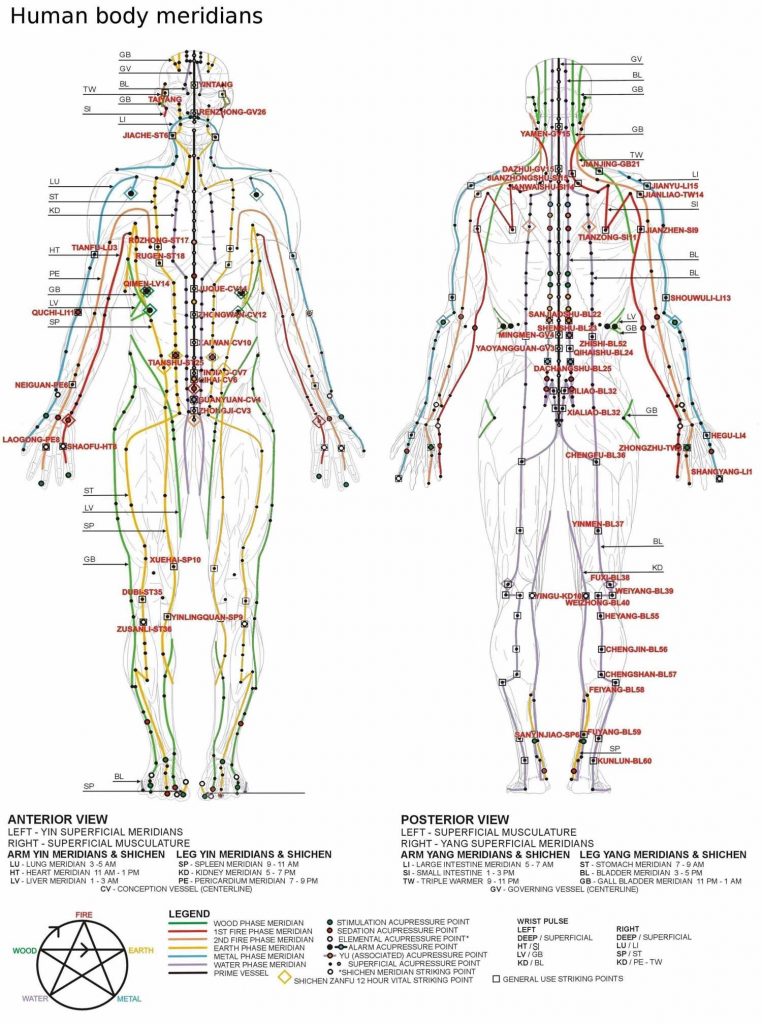
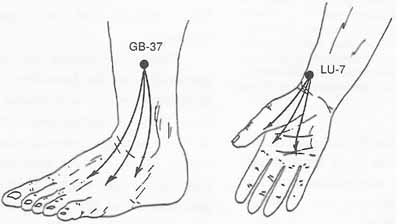
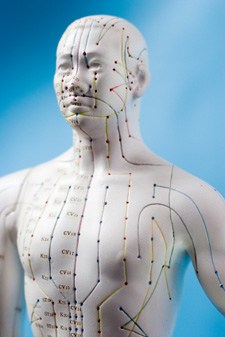
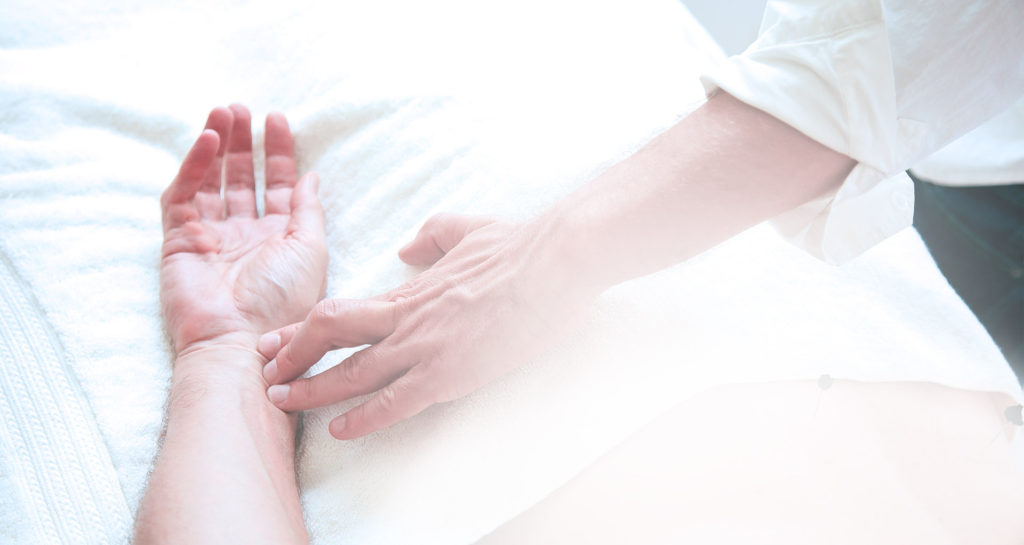
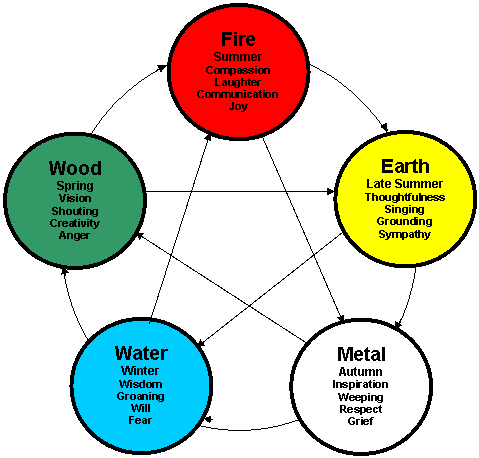
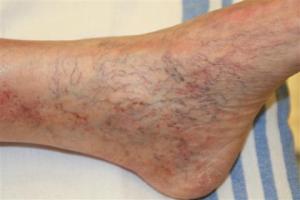
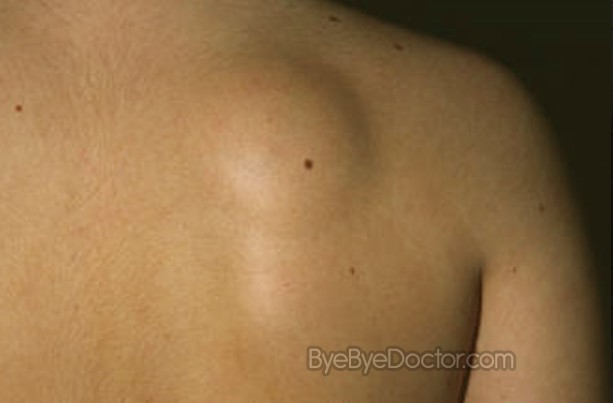
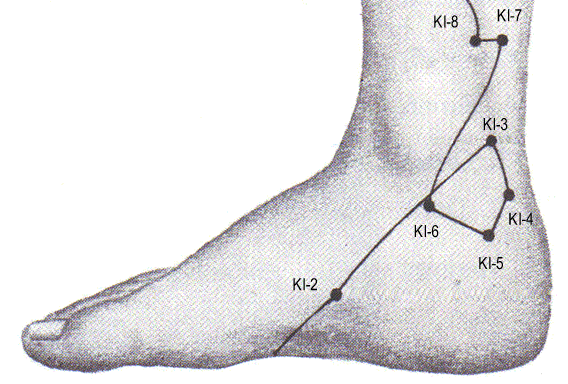
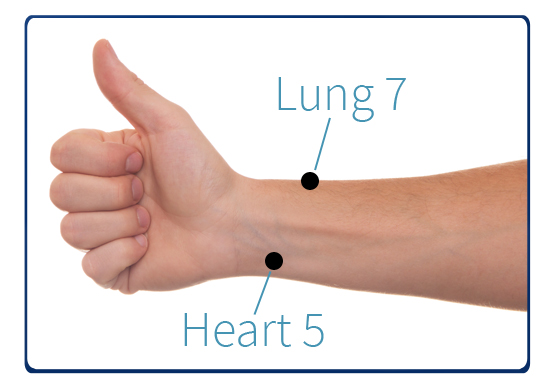
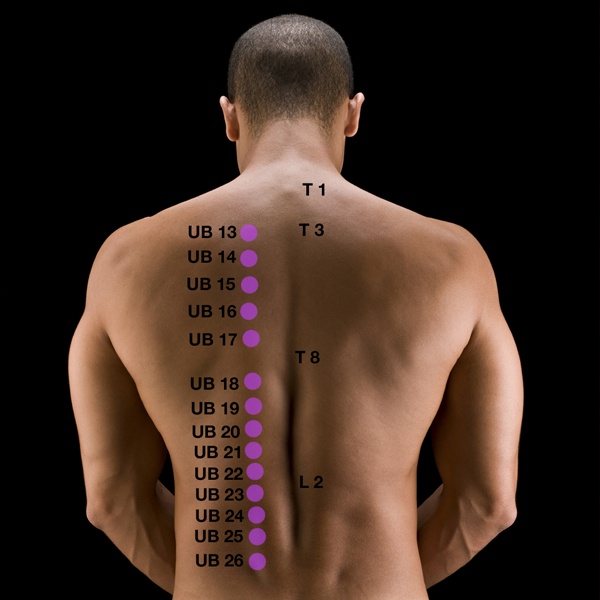
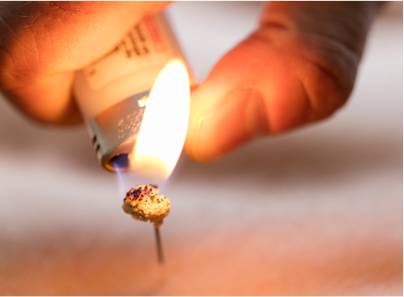
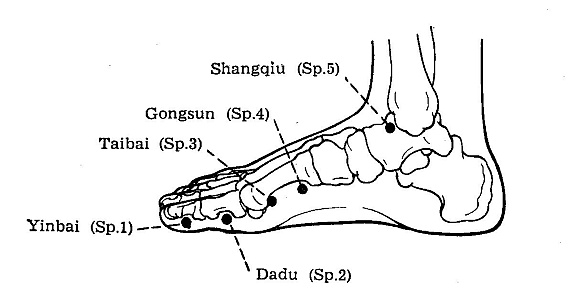



Bok Nam De Gregorio
November 5, 2017 1:37 amNicholas,
I enjoyed very much reading your article. I may re-think when I use Luo points in my practice. Thank you.